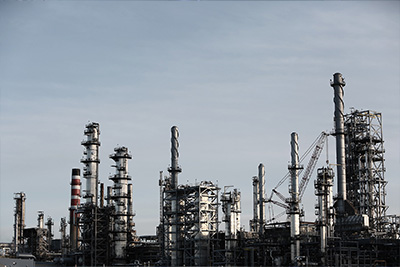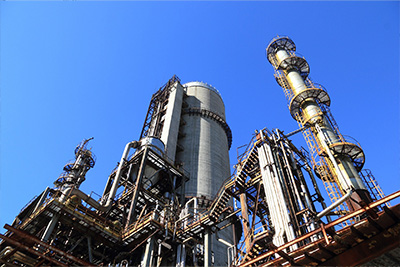-
![Upstream Productio···]() 2024-11-08 Upstream Production Challenges in Bu···
2024-11-08 Upstream Production Challenges in Bu···The production of butyltin compounds for the polymer industry faces significant upstream challenges, including complex synthesis processes, high raw material costs, and stringent environmental regulations. These factors necessitate efficient and sustainable manufacturing methods to ensure product quality and regulatory compliance while maintaining economic viability. Key issues include optimizing reaction conditions, minimizing waste, and improving yield, all of which require advanced process control and innovative technological solutions.
read more > -
![The Process Flow o···]() 2024-11-08 The Process Flow of Octyltin Compoun···
2024-11-08 The Process Flow of Octyltin Compoun···The manufacturing process of octyltin compounds involves stringent quality and environmental controls to ensure product purity and minimize ecological impact. Key steps include raw material preparation, reaction under controlled conditions, purification through distillation, and final formulation. Continuous monitoring and adjustment of parameters such as temperature, pressure, and catalyst concentration are critical for yield optimization and safety. Waste management strategies, including recycling and neutralization processes, are implemented to reduce environmental pollution. Comprehensive testing at each stage guarantees the compliance with regulatory standards, ensuring safe and efficient production of these organotin compounds.
read more > -
![Environmental Regu···]() 2024-11-08 Environmental Regulations and Compli···
2024-11-08 Environmental Regulations and Compli···This passage examines the environmental regulations and compliance measures associated with the production of methyltin and dimethyltin compounds. It highlights the stringent requirements set forth by regulatory bodies to minimize hazardous emissions and waste generation. The discussion covers key aspects such as the implementation of pollution control technologies, regular monitoring and reporting, and adherence to international safety standards. Effective compliance not only mitigates environmental impact but also ensures the sustainable operation of manufacturing processes. Key challenges include the high cost of compliance and the need for continuous technological advancements to meet evolving regulatory standards.
read more > -
![Technological Adva···]() 2024-11-08 Technological Advancements in Methyl···
2024-11-08 Technological Advancements in Methyl···Recent advancements in the synthesis of methyltin compounds have significantly impacted the Polyvinyl Chloride (PVC) market. Innovations in catalytic processes and raw material utilization have led to more efficient production methods, reducing costs and improving product quality. These improvements have not only enhanced the performance of tin stabilizers in PVC applications but also minimized environmental impacts through reduced waste and emissions. The developments are poised to drive growth in the global PVC market, fostering technological progress and sustainability in manufacturing processes.
read more > -
![A Comparative Stud···]() 2024-11-08 A Comparative Study on Methyltin and···
2024-11-08 A Comparative Study on Methyltin and···This study compares methyltin and butyltin compounds for their effectiveness in the heat stabilization of Polyvinyl Chloride (PVC). Through a series of experiments, the thermal stability, environmental impact, and economic feasibility of these organotin compounds were evaluated. Results indicate that while butyltin compounds offer better thermal stability, methyltin compounds present a more environmentally friendly and cost-effective alternative. The findings provide valuable insights for selecting appropriate stabilizers in PVC manufacturing processes, balancing performance and sustainability concerns.
read more > -
![Octyltin Manufactu···]() 2024-11-08 Octyltin Manufacturing Processes and···
2024-11-08 Octyltin Manufacturing Processes and···Octyltin compounds play a crucial role in enhancing the performance of advanced PVC applications through their use in manufacturing processes. These tin-based stabilizers improve the thermal stability, transparency, and UV resistance of PVC materials, making them suitable for various high-demand industries such as construction, automotive, and medical devices. The synthesis methods for octyltin compounds involve reacting tin salts with octanol, resulting in products like dioctyltin oxide and dioctyltin dichloride. By integrating these stabilizers into PVC formulations, manufacturers can significantly extend the service life and broaden the application range of PVC products, contributing to sustainable development and economic efficiency.
read more > -
![Dimethyltin as a C···]() 2024-11-08 Dimethyltin as a Core Stabilizer in ···
2024-11-08 Dimethyltin as a Core Stabilizer in ···Dimethyltin is increasingly utilized as a core stabilizer in Polyvinyl Chloride (PVC) production due to its superior thermal stability and efficiency. This article reviews current techniques employing dimethyltin stabilizers and explores future trends. It highlights the advantages of dimethyltin in enhancing PVC's resistance to degradation, particularly under high temperatures. The discussion also covers regulatory considerations and environmental impacts associated with its use, emphasizing the need for sustainable practices. Future research directions focus on developing more eco-friendly alternatives and improving the performance of existing stabilizers.
read more > -
![An Overview of Mer···]() 2024-11-07 An Overview of Mercaptide Tin Techno···
2024-11-07 An Overview of Mercaptide Tin Techno···Mercaptide tin technology represents a significant advancement in industrial polymer stabilization. This method utilizes mercaptides, which are sulfur-containing compounds, combined with tin to enhance the thermal stability and longevity of polymers. The technology is particularly effective in preventing degradation due to heat, light, and oxidation, thereby extending the service life of polymer materials. Key applications include automotive parts, packaging materials, and electronic components, where maintaining material integrity under various environmental stresses is crucial. The use of mercaptide tin stabilizers not only improves performance but also reduces manufacturing costs by minimizing material waste and enhancing production efficiency.
read more > -
![Butyltin Compound ···]() 2024-11-07 Butyltin Compound Production: Safety···
2024-11-07 Butyltin Compound Production: Safety···The production of butyltin compounds requires a balanced approach to ensure safety, efficiency, and environmental compliance. This process involves stringent safety measures to protect workers from toxic hazards associated with these compounds. Efficient production techniques are crucial to minimize waste and reduce costs. Additionally, adherence to environmental regulations is essential to prevent pollution and ecological damage. Implementing advanced technologies and continuous monitoring systems can help achieve these goals, ensuring sustainable and responsible manufacturing practices.
read more >





